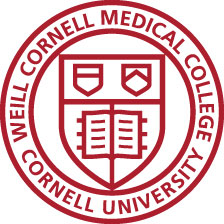
I was in my mid-thirties, engaged, and accepted that I could not have children. I was diagnosed with MS shortly before my 30th birthday. I was single, and, perhaps out of self-preservation, had convinced myself that I would never be able to have children. I feared that no one would want to have a relationship with me once I divulged my diagnosis. However, a glimmer of hope remained, and I continued to go out on dates. I faced some rejection, as I had feared, but shortly after I had turned 34, I met the man who would become my husband. We met months before the Covid 19 lockdown and spent the next year being the only people each other saw. That time together made me realize that my diagnosis didn’t make me unworthy of love and partnership.
When we became engaged in October 2021 and I began to feel some disappointment that we may not have any children. I had been on Gilenya more than half a decade and, with my age being a factor, I tried to reconcile this. However, during a routine visit with Dr. Perumal, she gave me some hope. We discussed the safety to me and to the fetus, and the rewards outweighed the potential risks.
My husband and I married in November 2022, two months after my 37th birthday. I stopped taking Gilenya in January 2023 and waited the recommend amount of time before we tried to conceive. In July 2023 I found out I was pregnant.
Being a pregnant woman of advanced maternal age with MS certainly poses more challenges than a typical pregnancy, but the challenges are not insurmountable. To be frank, my pregnancy was difficult. A quick succession of a virus, Covid, and the flu vaccine sent my immune system into overdrive, and I experienced my first flare. I was quite ill and had to receive several courses of steroid infusions throughout my pregnancy. I experienced another flare during my maternity leave and had to make the tough decision to start receiving biannual infusions of Ocrevus. I had to refrain from breastfeeding for 24 hours after each infusion. Pumping and dumping my milk in order to maintain my supply was emotionally taxing, but worth the heartache knowing that I would be able to resume nursing a day later. I was incredibly fortunate to have a strong supply that wasn’t affected by these interruptions. However, I recognize that not everyone is able to or desires to nurse. Despite all my setbacks, I am pleased to say that I have a happy and healthy 17 month old son.
Every MS patient’s journey is different, but I would like to encourage anyone who is considering parenthood to have an honest discussion with their partner and doctors. No pregnancy is linear, but I have learned that it is possible to build a family with an MS diagnosis.

